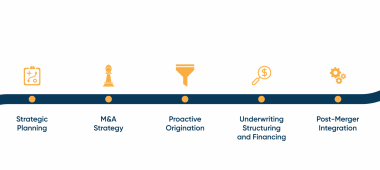This article was originally published in Forbes.
As small and middle market businesses struggle with liquidity during this pandemic, there are levers that a business owner or CFO can pull to generate additional cash quickly. While there are implications to consider with every lever pulled, the reality is a business may have no choice. Business survival is at stake.
Yet the good news here is that if you have been building up your relationship capital, partners, suppliers and customers will likely be more understanding and more willing to work with you in COVID-19 times than under normal circumstances. The key is to be honest and transparent when you explain your situation and ask for concessions. It’s not an easy conversation but frequent and early communication is key, not avoiding their phone calls. You’ll need to make them understand that keeping your business in business is a win-win for them, too.
In order to generate cash quickly, here are a few ways to shake out some cash:
- Raise prices. I hear you: “Oh, no, I can’t do that. The competition will crush me.” While Covid surcharges have not been well received by consumers, you’d be surprised what your customers may accept on a short-term basis in unprecedented times like these.
- Take risks with warranties. You often can induce reluctant customers to buy during periods of uncertainty with generous and flexible guarantees and return policies. Hyundai boosted sales by 24% during the depths of the Great Recession by offering to buy your car back if you lost your job.
- Sell off inventory. But first you need to consider your inventory in different buckets – your obsolete, inactive inventory, your slow movers and your active inventory. Try discounting your slower-moving inventory, but consider a fire sale on that obsolete stock to raise cash quickly. Sure, you’ll take a hit on your balance sheet, but the reality is that balance sheet was artificially inflated.
- Defensively draw on your line of credit. This is particularly relevant as your performance deteriorates, because most loan documents provide the bank the ability to restrict access.
- Ramp up collection efforts. We all get a little lazy with outstanding receivables, especially in better times. Stay on top of any late payers, particularly those you suspect may also be struggling. Remember you catch more bees with honey than you do with vinegar— Build rapport with their Accounts Payable clerk, explaining that you are a small business and asking for them to do you the “favor” of prioritizing your invoice. Also consider offering discounts to incentivize early payments.
- Ask for payments up-front. Particularly for any customers you’re concerned about, require cash on delivery. It also likely makes sense to accept credit cards (and their fees), as it provides immediate payment and eliminates the underlying credit risk.
- Consider external funding sources. Yes, this may be the time to hit up the bank of friends and family.
You also need to stop leaking cash. Conserving cash, of course, is about prioritizing who gets paid and when. While every business has different circumstances, these decisions should be based upon identifying the absolutely essential charges that if not paid could put you out of business from other payments that can be delayed.
You’ve probably already cut expenses and deferred capital expenditures wherever you can. You may have also negotiated loan and lease payment forbearances with your lender and landlord. Here are some additional ways to conserve cash – and one maneuver to avoid at all costs.
- Formalize your internal procurement process. Consider centralizing purchasing, making purchase orders mandatory and lowing the thresholds on purchases needing CEO approval. The organization needs to quickly instill a cash preservation culture, which can be reinforced by celebrating team members who find creative savings.
- Slow down those payables. While selecting what and how long to delay is an art, not a science, this is another place where you need to cash in on some of your relationship capital that has grown over the years with suppliers and vendors to negotiate longer billing periods – for the short term. Let them know the situation at hand: “To be compliant with the bank, we need to slow down the payables.”
- Restart credit plans with your vendors. If you are in arrears by a lot, ask your vendors to take everything past due and put in the form of a long-term loan. Your vendors are financing you and that gives you a reprieve, allowing you to get back on your feet. It’s in their best interest, too, to improve their odds of recovery. “Converting past vendor receivables into long-term secured debt can give suppliers priority in the event of a bankruptcy proceeding” according to Michael Goldberg, a Partner at Akerman, LLP.
- Never ever skip tax withholdings. This is the most important tip of all. You as an employer are a trustee of the IRS’ money and there is potential criminal liability from inappropriately accessing it. Resist the temptation.
With COVID-19’s economic fatalities increasing by the day, time is of the essence to convince your partners, vendors and customers that by working with you to get your business to the other side, it’s a win for them, too.











